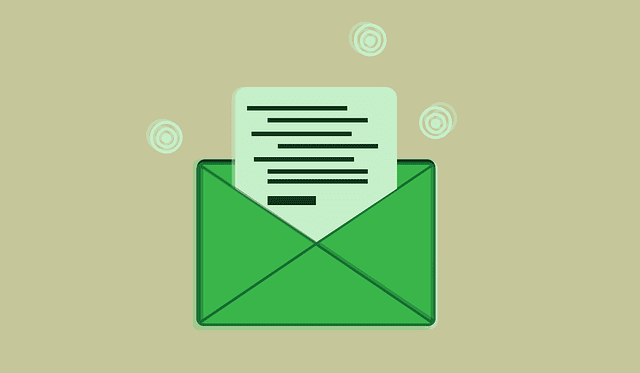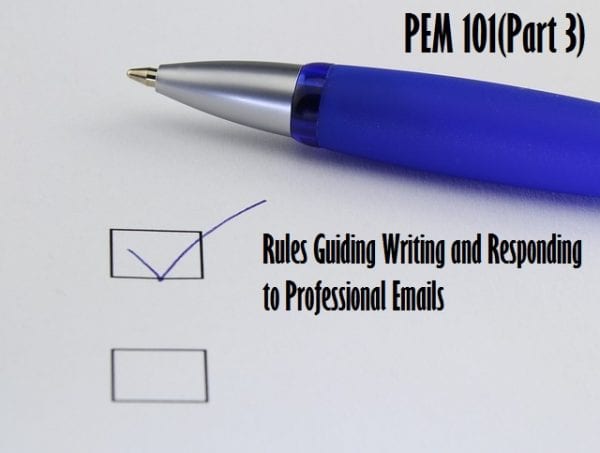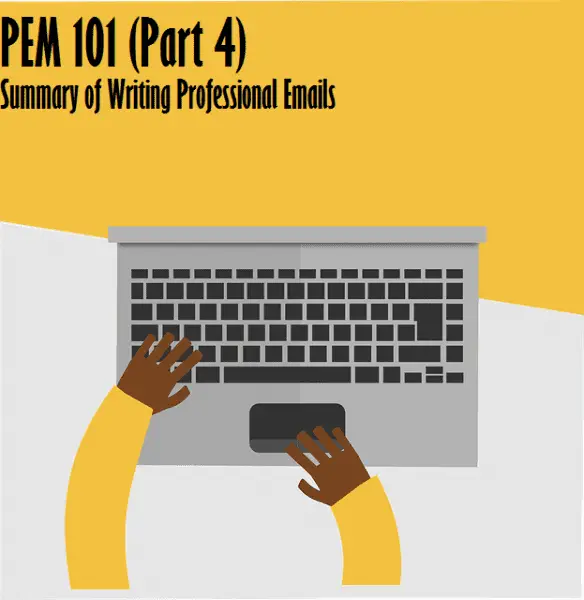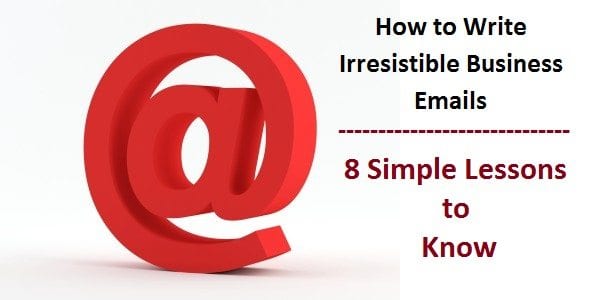Writing formal emails has become an inevitable part of our lives. Hence, the quality of communication sent out by an organization is often the first impression potential customers receive and a key factor in meeting existing customer requirements. As email has become one of the most popular means of communicating with customers, it is essential to develop the skills to capture and deliver information clearly, concisely and professionally.
The ability to capture information clearly, identify and address the important issues, and maintain a professional tone in email communications is a skill that distinguishes organizations and individuals as competent and professional.
Important Tips for Writing Formal Emails Professionally
Here are 5 tips to help you write formal emails professionally:
State the Purpose of Your Email Clearly
Before you start writing a formal email, be clear about the purpose of the email. What is it that you want the customer or receiver to know or do? Your email will be more effective if you state the purpose of your email as the introductory statement. Readers want to know why you are contacting them and what you want from them up front.
Email Example (Writing Formal Emails): Responding to a Customer Inquiry
Good day,
Thank you for your email requesting information about our event planning packages
From this introduction, the receiver already knows the purpose of the email and can expect the following lines will be the requested information.
A common introduction used by most professionals is Further to your email requesting etc…, this works as well but is most appropriate when responding to a thread or a customer you have engaged with previously. With new customers, it is best to open with a warmer introduction.
Organize the Email Content Clearly
In all corporate communication it is essential to remember that the receiver may have a lot going on and a short attention span, so your focus should always be on finding a way to present information as clearly and concisely as possible. Lengthy emails and story-like explanations will most often mean your email will not be read through or miscommunication will occur. When you have to provide a lot of data or information by email it is best to organize the information with numbers or bullets. Complex information can be presented in a table for easy comprehension.
Another effective way to share large amounts of data by email is to detail the information on a separate document (Word or Excel) and attach the document to the email with a reference.
An example of this in practice is:
Poor Presentation
I have been directed to inform you that the delivery has been completed. The mixed up items have been traced and properly delivered. The process for logging orders has been updated based on your input and there will be a management meeting to review the outcomes of the complaint next week.
Better presentation
I have been directed to inform you that:
- The delivery has been completed
- The mixed up items have been traced and properly delivered.
- The process for logging orders has been updated based on your input.
- There will be a management meeting to review the outcomes of the complaint next week.
The above presentation of the same information is easier to read and ensures that a busy person can quickly see all the relevant information.
Always Review Your Grammar
Mistakes in grammar and spelling will diminish the effectiveness of your communication and affect public perception of your competence. Therefore, it is essential to proof read emails carefully before sending them out. Though most computers and email providers come with autocorrect, it is essential to go over your email carefully.
When addressing individuals by name in a formal email, ensure that you spell their names correctly, especially if their name appears in their email address or on a previous email. Attention to detail is a quality that distinguishes organizations and their personnel.
Have Someone Review Your Writing
Use the buddy system to improve your email writing skill. This involves collaborating with a friend or colleague to proof your emails and vice versa. This is a powerful technique for improving writing skills as the feedback from another person helps you evaluate the elements of your writing that you may otherwise overlook such as tone, diction, and clarity. Statements in written communication can often be misinterpreted, therefore when having your buddy review your writing, confirm that they get your point of view clearly. The tone of your communication is also very important, especially when dealing with clients and superiors, so ensure your choice of words is appropriate and professional.
Practice
Writing formal emails effectively may not take 1000 hours to master but practice is essential. Do not shy away from writing tasks but look for opportunities to write and receive feedback on your writing skills. This will help you improve. You will often find yourself copied in an email or added to a lengthy email trail. Reading such emails will also help you develop your own email writing skills. Pay attention to how others in your organization communicate by email and arrange the information they present to guide you in writing formal emails.
Conclusion
The ability to communicate effectively by email is an essential skill every person must develop as email has become the standard means of communicating in most organizations. Email communications must be easy to read and understand. Developing email writing skill will ensure you present yourself as a competent professional when writing a formal email.
Be clear about the objective of your email, capture and organize information clearly, review your writing for grammatical and mechanical errors, and your email communications will become world class. To broaden your scope, have someone review your emails before sending them out, study the email communications of others and create opportunities for practice.








Well intended as a lot of official communication lack professionalism these days and people find it difficult to differentiate leisurely chats from official communication